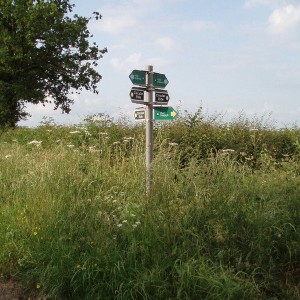Objectivity is put to the test whenever we make judgements. Judgements might be large or small. They might be reflected on closely or only potentially an object of conscious reflection. They might be about how to act in a particular situation, about what sort of beliefs to adopt, and about factual, moral or aesthetic questions. It is a matter of judgement whether you accept the evidence for Global Warming or whether you accept that Michelangelo was a great artist. It is also a matter of judgement at what point you decide to get up and empty your bladder as you feel it filling up.
Judgements are where people interact with the world around them, so each judgement has an aspect related to the subject (who is making the judgement) and the object (what the judgement is about). Each of these aspects is commonly subject to metaphysical dualisms that distort and dogmatise our view of judgement. In relation to the subject, there is the freewill v determinism dualism. Here it is assumed either that a person can make an entirely ‘free’ judgement unaffected by their flesh and blood situation, or that the judgement is already inevitable given the surrounding conditions. In relation to the object, it can be assumed that either a judgement is ‘correct’ (fitting how things really are) or that it is merely ‘subjective’ and may as well be a random choice, because any one judgement is as good as another.
It is important to avoid these metaphysical assumptions about judgement from the outset. We have no way of knowing whether our judgement will ever be absolute or relative, completely right or wrong, determined or completely free. It is thus better to remain agnostic on these points, and work only on the basis of our experience. Our experience suggests that we do make a difference through our judgements, even though they are influenced by our circumstances, and that some judgements can be better than others. We will only ever have incremental grounds for believing this, but that is enough.
The quality of our judgements will depend to some extent on what we are like as a person, both in terms of our genetic and environmental conditioning and in terms of the effects of our previous judgements. All of these influence our subsequent judgements. However, the quality of our judgements will also depend on the awareness, care and responsibility we exercise at each moment of judgement. We can push our awareness just a little further, so as to take a little more of the conditions into account, each time.
We are responsible for our judgements, but only to some extent. For example, a criminal from a deprived background making a decision to commit a crime is responsible for that decision to some extent, but only in the sense that he could have pushed his previously limited levels of awareness forward a little. We cannot expect him to make entirely new neural connections from nowhere that create entirely new ways of acting, but only to create slight new connections that open new possibilities, or to slightly deepen positive connections that exist already.
At the moment we make a judgement, we have to commit ourselves to a particular model of conditions. In other words, we have a set of beliefs in our mind about what is the case in the world, in ourselves, and in terms of other ideas we might use for judgement such as moral principles. These beliefs are in a state of flux, but they are frozen in a snapshot each time we make a judgement. We say “Yes, that’s so”, affirming to ourselves or others that we think the picture is correct, and/or we act as though that picture is correct. There is no way around this. Action requires commitment to a representation of the world.
One judgement is better than another alternative possible judgement, for the same person in the same situation, if it takes more conditions into account at the point that we take that snapshot. Given that we engage with conditions in two different possible ways, there are two different ways that our judgements can be improved. One is by using a set of beliefs that is more coherent. That means that we have extended the model we are using so as to take into account more evidence. The other way is by being aware of the limitations of our model. For example, if I suspect someone of deceit, but am aware that I might be wrong, I am likely to be less confrontational in dealing with the situation, and adopt more gradual and provisional ways of confirming or disconfirming my suspicions without making the person concerned more defensive. A judgement that the person may have deceived me that takes into account that fallibility is likely to be more objective than a raw accusation, even if that accusation is based on lots of evidence.
Middle Way Philosophy avoids relativism by focusing on that moment of judgement when it can be asserted that one judgement is better than another. There may be a variety of different ways in which judgement can be improved. It is also difficult to compare the quality of judgements between different people and across situations – and when we do so we need to be even more aware of the fallibility that creates. All judgement takes place under uncertainty, and the further we are from the precise conditions that accompany the judgement, the greater that uncertainty grows. But that doesn’t mean that we are never justified in making moral or other judgements, or in ascribing incremental objectivity to judgements.
Related pages: Ethics, Objectivity, Facts and Values
Picture: ‘Choices, choices’ by Duncan Lilly (Wikimedia Commons)
